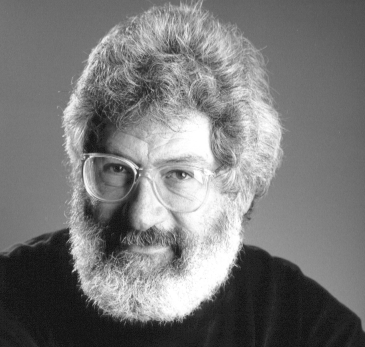
"The philosophy of Descartes was not only important for the development of classical physics, but also had enormous influence throughout the Western way of thinking to this day. Descartes's famous phrase "Cogito ergo sum" has led Western man to identify with your mind rather than the whole organism. As a result of the Cartesian separation, modern man is aware of itself, in most cases, isolated as I live "inside" of your body. The mind is divided from the body and has been given the task of redundant checks, and that resulted in the appearance of a conflict between conscious and involuntary instincts. Everyone has been further divided into the activities, skills, feelings, opinions, etc., in a large number of separate compartments, unquenchable in conflicts which generate a constant confusion and metaphysics as much frustration. This inner fragmentation of man mirrors his view of the world "outside," which is seen as a set of separate objects and events. This view is further extended to the unitary company, which is divided into different nations, races, religious and political groups. The belief that all these fragments - in ourselves, in our environment and our society - they are really separate can be seen as the root cause of all the current crises, social, ecological and cultural. It has alienated us from nature and our fellow human beings. It caused a incredibly unjust distribution of natural resources, creating economic chaos and political wave of violence, both spontaneous and institutionalized, which grew, and a hostile environment, polluted, in which life has become physically and spiritually unhealthy. The separation made by Descartes and the mechanistic conception of the world have therefore increased at the same time benefits and damages, have proved extremely useful for the development of classical physics and technology, but have had many harmful consequences for our civilization"
"The correspondence between the suggested scientific experiments and mystical experiences may seem surprising, given the very different nature of these modes of observation. Physicists perform experiments that require a complex teamwork and a highly sophisticated technology, whereas mystics obtain their knowledge simply through introspection, without any machine, isolation of meditation. Scientific experiments also appear to be recoverable at any time by anyone, while mystical experiences are unique to a few individuals in particular situations. A closer examination shows, however, that the differences between the two types of observation consist only in how they tackle the problem and not in their reliability or their complexity. Anybody want a repeat experiment of modern subatomic physics must take many years of study and training. Only then can ask specific questions to nature through experiment and understand the answer. Similarly, a profound mystical experience generally requires many years of operation with an experienced master and, as with the scientific background, the time devoted to learning alone does not guarantee the result. However, if successful, the student will be able to "repeat the experiment". The repeatability of the experience is indeed essential for all learning and mystical teaching is the real purpose of spiritual mysticism. "







 This is what happens when we forget that the mind is meant to be a servant, and start to allow it to run our lives. The head is filled with mechanisms, the mouth is ranting and raving, and the whole surrounding atmosphere is being polluted by this factory of arguments and opinions.
This is what happens when we forget that the mind is meant to be a servant, and start to allow it to run our lives. The head is filled with mechanisms, the mouth is ranting and raving, and the whole surrounding atmosphere is being polluted by this factory of arguments and opinions. 





